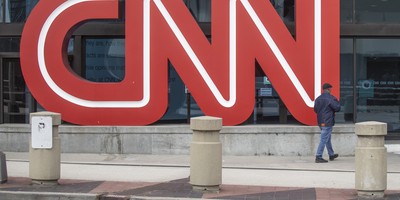Query: If President Obama's nuke deal with Iran is so wonderful, why do the major parties in Israel oppose it? Why was Obama so excited about making a deal that, based on his previous positions, he would have opposed earlier?
This agreement is baffling on multiple grounds, even for Obama. What is the urgency for the United States to enter into such a lopsided deal with a rogue nation that doesn't have a fraction of our negotiating leverage? Why can't Obama deal with Iran's leaders the way he deals with Republicans? Is he trying to validate conspiracy theorists convinced that he's the Manchurian candidate?
Have you ever noticed that there is an inverse relationship between the wisdom of an Obama policy and his defensiveness concerning it? The media are abuzz over the alleged disrespect CBS News White House correspondent Major Garrett showed Obama during a news conference. But Garrett wasn't the only person on whom Obama unloaded. He lashed out at Israeli Prime Minister Benjamin Netanyahu and members of Congress who oppose the deal.
Obama dared his critics to present a better alternative and, as usual, implied their opposition is not based on the facts but a matter of political posturing and pressure from lobbyists. "I am not betting on the Republican Party rallying behind this agreement," he said. I pray he's right about that.
What about Obama's arrogant dismissal of his critics and claiming this is the best deal we could have made?
First, this assumes that a terrible deal is better than no deal at all, which is highly debatable.
Beyond that, let's look at some of the problems with this agreement.
Recommended
--It is not clear whether it will allow the International Atomic Energy Agency sufficient access to Parchin, the military site where Iran is believed to have carried out high-explosives work of a sort that could be used to detonate a nuclear bomb. Iran has consistently denied the IAEA access to the site. Experts say we won't be able to properly assess Iran's activities without comprehensive access to key scientists, sites and documentation. The Obama administration formerly made such access a condition to the deal, but no longer. Why not? And if Iran has nothing to hide, why would it play games and deny access to the IAEA?
--Obama's team has made numerous concessions that will most likely impede the long-term ability of the IAEA to police the agreement. For instance, Iran could appeal an IAEA request to visit a questionable site, and a decision would take some 24 days, during which Iran could remove material and evidence of its activities in violation of the agreement. Compounding the problem is that the agreement gives the decisive vote on Iran's compliance to the European Union, sort of like the way Justice Anthony Kennedy is often the key player in major Supreme Court decisions.
--The administration has had to backpedal from its initial claim that it would never approve of a deal unless it included "anytime/anywhere" inspections of Iranian military and nuclear sites. Now administration officials insist they never imposed such a condition, though a video recording exposes their earlier statements.
--In 2013, Obama said Iran doesn't need to have an underground fortified facility, a heavy-water reactor or advanced centrifuges for its peaceful nuclear energy program, but this deal permits the country to have all of these. Just as Obama rewards immigrants who came here illegally for violating our laws, he is rewarding Iran for building these facilities in violation of the Nuclear Non-Proliferation Treaty.
--The deal legitimizes Iran as a nuclear state and will very likely cause a nuclear arms race in the Middle East, some evidence of which we're already observing. Saudi Arabia is in negotiations to buy nuclear reactors from France, which could later be converted to weapons use in the future.
--All economic and financial sanctions against Iran will be removed. The deal will also lift sanctions on a general who helped terrorists target Americans.
--Iran's nuclear infrastructure will be preserved, and it will continue nuclear enrichment on more advantageous terms than we have offered to our allies. Saudi Arabia has stated that it will demand similar terms for uranium enrichment.
--None of Iran's nuclear sites will be closed, despite our earlier demands for that.
--Iran's arms embargo will be lifted.
--Some $150 billion of Iran's blocked revenues held in foreign banks will be unfrozen, and it will be free to use those funds to sponsor international terrorism, and the Obama administration has admitted as much.
--The deal may delay Iran's quest for nuclear weapons capability, but it won't stop it.
--Iran has made no pretense of its ongoing hatred for the United States and Israel, and its leadership continues to advocate "death to America."
Obama could have used our disproportionate negotiating leverage to condition this deal on Iran's release of four fraudulently held American hostages, but he lifted nary a finger to help them. Obama suggested he cares deeply about these Americans but didn't want to conflate this issue with the all-important nuclear deal. Why not? The Iranians were certainly able to secure concessions that had even less to do with the deal.
Obama desperately wanted this deal, which is why he unilaterally forfeited our bargaining advantage and continued to walk back conditions he had earlier imposed. It is obvious that Iran was fully aware of Obama's desperation and exploited it throughout the negotiations.
This deal is worse than a disgrace. It's a national security nightmare.

























Join the conversation as a VIP Member